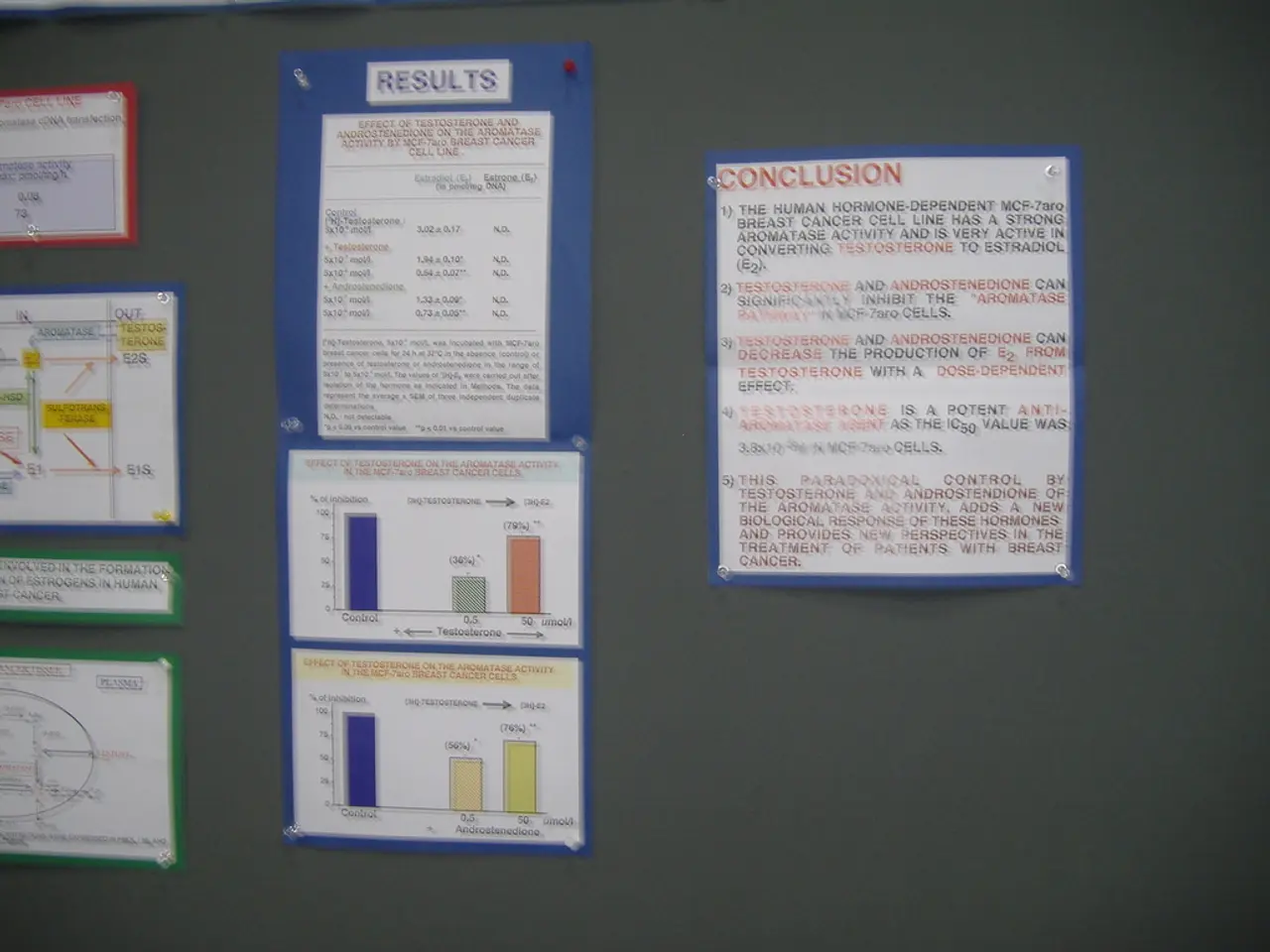Small and Medium Enterprises (SMEs) in Germany primarily worry about the indirect effects of US tariffs. - Small and Medium-Sized Enterprises (SMEs) in Germany express worries over potential hidden impacts of US tariffs
Get ready for a rollercoaster ride, Berlin. Small and medium-sized businesses in Germany's metal, automotive, and machinery sectors are bracing themselves for a turbulent journey ahead, thanks to US tariffs and potential EU countermeasures.
According to a study by DZ Bank, these businesses are fretting about potential price hikes of their own products in the US or a decline in demand for exports to the US market. Industries like metal, automotive, and machinery sectors believe that their trade with US partners will take a hit due to US tariffs, which could negatively impact their own businesses. A staggering two-thirds of companies in these sectors expect indirect negative consequences.
Now, let's talk numbers. While roughly 29% of companies don't seem to be too bothered, they might want to think again. You see, it's not just about the direct import duties in the US. EU counter-tariffs could hit hard. Approximately 29% expect direct consequences, like higher procurement costs, while only 19% expect no negative consequences at all.
Now, don't start panicking just yet. Claus Niegsch, a DZ Bank analyst, thinks the fear of increased expenses might be premature. He reckons that as US goods become more costly, goods originally intended for the American market could find their way to Europe, potentially lowering prices here.
DZ Bank surveyed 1,000 owners and managers of Germany's SMEs between March 6 and March 26. As the exact tariff levels on goods from the EU were still undecided at the time, a 25% tariff for the automotive sector was already being mooted. In fact, tariffs of 25% on steel and aluminum had already been in effect since March 12. The survey is said to be representative.
What's the Lowdown?
The upcoming US tariffs and EU countermeasures could impact German SMEs in several ways:
- ** direct costs**: US tariffs can directly increase the cost of exporting goods to the US, potentially reducing profit margins.
- ** reduced exports**: Higher tariffs can decrease demand for German exports in the US market, affecting sales volumes and revenue.
- ** supply chain disruptions**: Tariffs can disrupt supply chains, particularly for components and raw materials sourced from countries like China, potentially making it difficult to maintain production levels.
- ** market uncertainty**: Uncertainty surrounding tariffs and potential EU countermeasures can create a volatile market environment, affecting investment decisions and business planning.
- ** global market shifts**: SMEs may need to focus more on other global markets to compensate for reduced US exports, leading to significant adjustments in marketing strategies and production capacities.
What Can They Do About It?
- ** diversify export markets**: SMEs could focus on expanding into new markets to reduce dependence on the US.
- ** optimize supply chains**: Companies may need to optimize their supply chains to minimize exposure to tariffs.
- ** invest in technology and efficiency improvements**: investing in technology and efficiency improvements could help SMEs maintain competitiveness despite increased costs.
While larger companies might be able to weather the storm, SMEs could face greater challenges due to their limited resources and scale. And remember folks, life as an SME in the metal, automotive, or machinery sectors is about to get a whole lot more interesting.
- Germany
- DZ Bank AG
- USA
- SMEs
- Metal
- Machinery
- Frankfurt am Main
- Automotive
- The potential impact of US tariffs and EU countermeasures on Germany's SMEs in the metal, automotive, and machinery sectors is a matter of concern, with many businesses anticipating direct cost increases and reduced exports.
- DZ Bank's study reveals that the majority of companies in these sectors expect indirect negative consequences, such as supply chain disruptions and market uncertainty, due to the proposed tariffs.
- To mitigate the effects of tariffs, SMEs are advised to diversify their export markets, optimize their supply chains, and invest in technology and efficiency improvements to maintain competitiveness and resilience in the face of increased costs.








